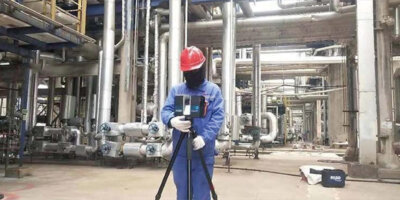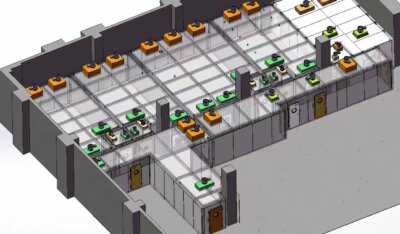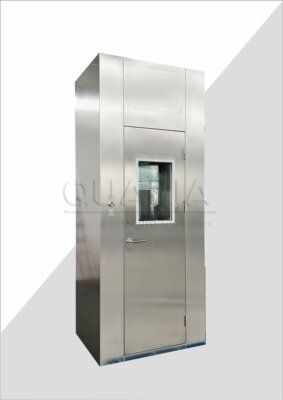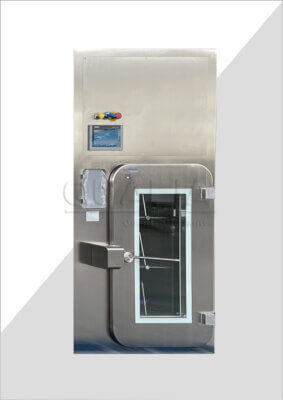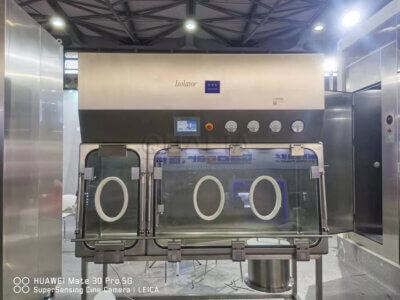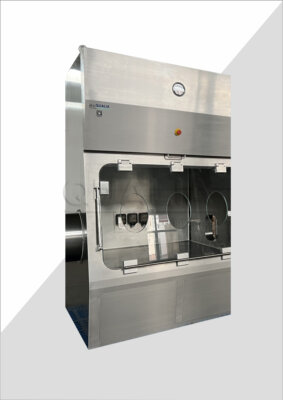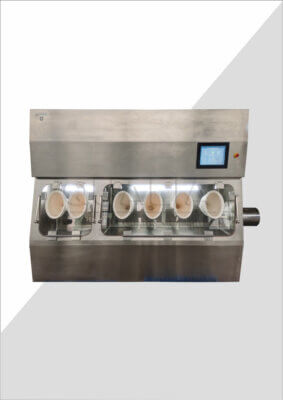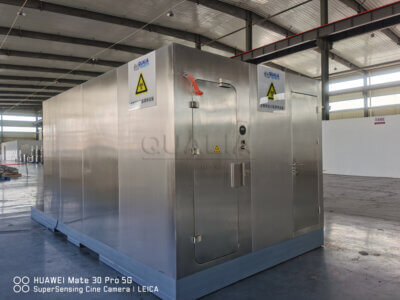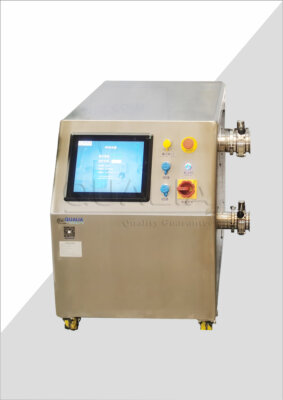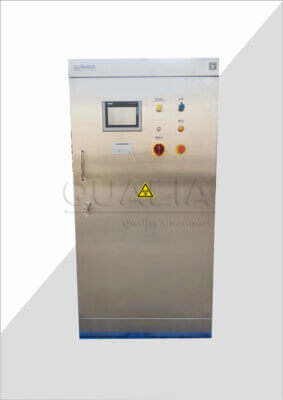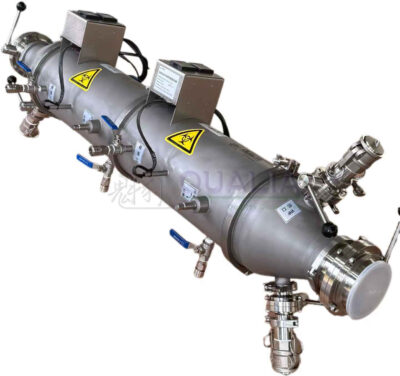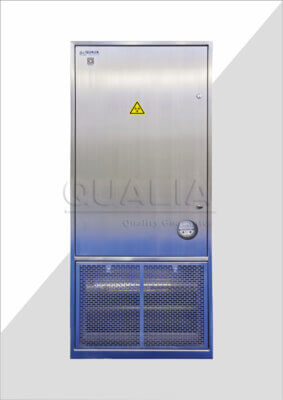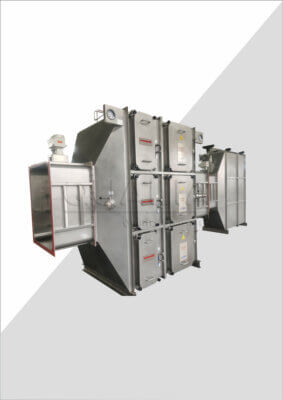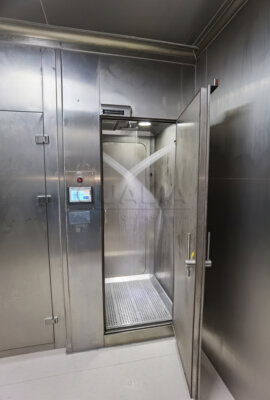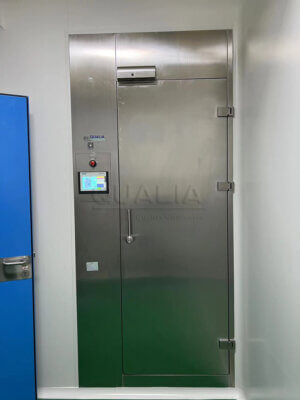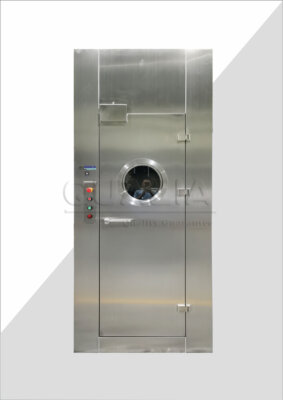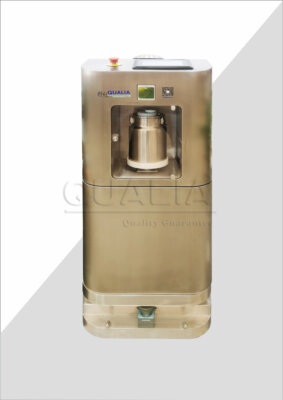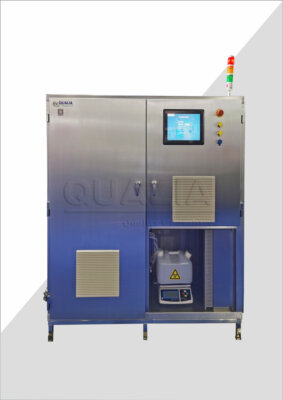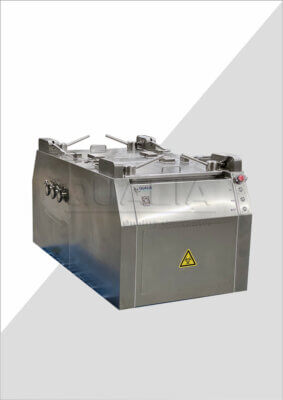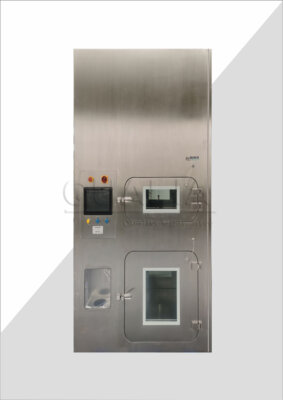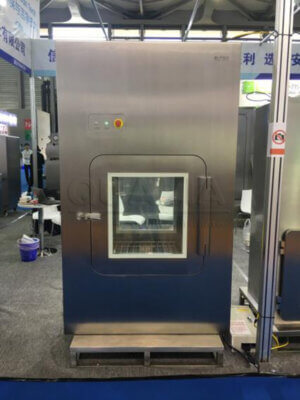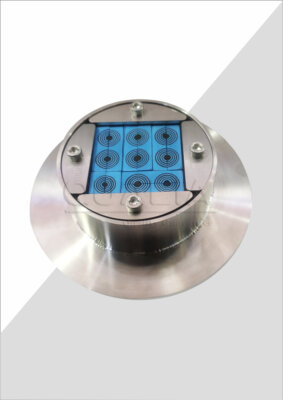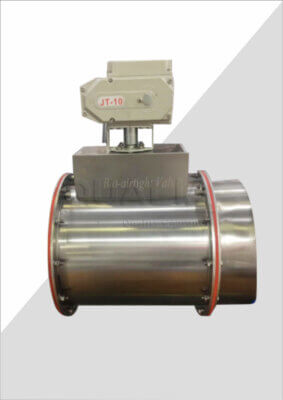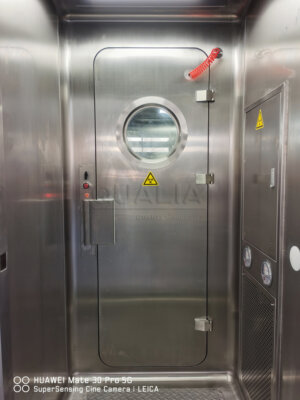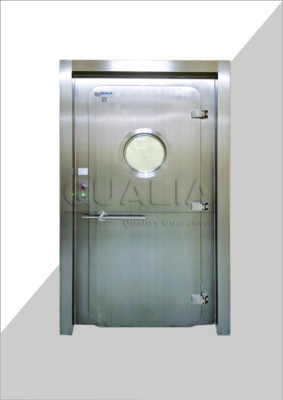Isolator technicians play a crucial role in maintaining the integrity of controlled environments in various industries, particularly in pharmaceuticals and biotechnology. As the demand for highly skilled professionals in this field continues to grow, certification programs have become essential to ensure technicians possess the necessary knowledge and expertise. These programs not only validate the competence of isolator technicians but also contribute to maintaining the highest standards of safety and quality in critical operations.
The landscape of certification programs for isolator technicians is diverse and comprehensive, covering a wide range of topics from basic principles to advanced techniques. These programs are designed to equip technicians with the skills needed to operate, maintain, and troubleshoot isolators effectively. By obtaining certification, technicians demonstrate their commitment to professional development and their ability to meet industry standards.
As we delve deeper into the world of OEB4/OEB5 Isolator Technician Certification Programs, we'll explore the various aspects of these certifications, their importance in the industry, and how they contribute to the overall safety and efficiency of isolator operations. From the fundamentals of isolator technology to the intricacies of decontamination procedures, these certification programs offer a thorough and practical approach to professional development in this specialized field.
Certification programs for isolator technicians are essential for ensuring the highest standards of safety and quality in critical operations, particularly in the pharmaceutical and biotechnology industries.
What are the key components of OEB4/OEB5 Isolator Technician Certification Programs?
The OEB4/OEB5 Isolator Technician Certification Programs are comprehensive courses designed to provide technicians with the knowledge and skills necessary to operate and maintain high-containment isolators. These programs cover a wide range of topics, from basic principles to advanced techniques, ensuring that certified technicians are well-equipped to handle the challenges of working with isolators in various industries.
Key components of these certification programs typically include theoretical knowledge, practical skills training, and assessment modules. The curriculum is carefully crafted to address all aspects of isolator technology, including design principles, operational procedures, maintenance protocols, and troubleshooting techniques.
One of the primary focuses of these programs is to ensure that technicians understand the critical nature of containment in OEB4 and OEB5 environments. This includes in-depth study of containment strategies, risk assessment, and the implementation of safety protocols.
OEB4/OEB5 Isolator Technician Certification Programs are designed to provide comprehensive training in all aspects of high-containment isolator operation and maintenance, with a strong emphasis on safety and containment strategies.
To illustrate the breadth of topics covered in these certification programs, consider the following table:
| Module | Topics Covered |
|---|---|
| Isolator Design | Principles of containment, airflow patterns, HEPA filtration |
| Operational Procedures | Gloving techniques, material transfer, cleaning protocols |
| Maintenance | Preventive maintenance, filter changes, integrity testing |
| Decontamination | VHP cycles, surface decontamination, sterilization techniques |
| Safety Protocols | Personal protective equipment, emergency procedures, spill response |
The comprehensive nature of these certification programs ensures that technicians are well-prepared to handle the complexities of working with OEB4/OEB5 isolators. By covering both theoretical knowledge and practical skills, these programs produce highly competent professionals capable of maintaining the highest standards of safety and efficiency in isolator operations.
How does certification enhance the skills of isolator technicians?
Certification programs play a crucial role in enhancing the skills of isolator technicians, providing them with a structured and comprehensive approach to learning and skill development. These programs are designed to bridge the gap between theoretical knowledge and practical application, ensuring that technicians are well-prepared for the challenges they may face in real-world scenarios.
One of the key benefits of certification is the standardization of knowledge and skills across the industry. By completing a recognized certification program, technicians demonstrate that they have met a specific set of competencies and standards, which are often developed in collaboration with industry experts and regulatory bodies.
The skill enhancement process in certification programs typically involves a combination of classroom learning, hands-on training, and practical assessments. This multi-faceted approach ensures that technicians not only understand the theoretical principles behind isolator technology but can also apply this knowledge effectively in their daily work.
Certification programs for isolator technicians provide a comprehensive and standardized approach to skill development, combining theoretical knowledge with practical application to produce highly competent professionals.
To better understand the impact of certification on skill enhancement, consider the following table:
| Skill Area | Pre-Certification | Post-Certification |
|---|---|---|
| Technical Knowledge | Basic understanding | In-depth comprehension |
| Operational Proficiency | Limited experience | High level of competence |
| Problem-Solving | Reactive approach | Proactive and analytical |
| Safety Awareness | General knowledge | Comprehensive understanding |
| Regulatory Compliance | Limited familiarity | Thorough knowledge |
The transformation of skills through certification programs is evident in the improved technical knowledge, operational proficiency, and problem-solving abilities of certified technicians. Moreover, these programs instill a heightened sense of safety awareness and a thorough understanding of regulatory compliance, which are critical in the high-stakes environments where isolators are typically used.
By enhancing these key skills, certification programs not only benefit the individual technicians but also contribute to the overall safety and efficiency of isolator operations in various industries. This makes certified isolator technicians highly valuable assets to their employers and the industry as a whole.
What are the industry standards addressed in these certification programs?
Certification programs for isolator technicians are designed to align closely with industry standards and regulatory requirements. These programs ensure that technicians are well-versed in the latest guidelines and best practices, making them invaluable assets in maintaining compliance and quality in their respective industries.
The curriculum of these certification programs typically covers a wide range of industry standards, including those set by regulatory bodies such as the FDA, EMA, and ISO. These standards encompass various aspects of isolator technology, from design and operation to maintenance and decontamination procedures.
One of the key focuses of these programs is to ensure that technicians understand the importance of Good Manufacturing Practices (GMP) and how they apply to isolator operations. This includes detailed study of cleanroom classifications, contamination control strategies, and validation processes.
Certification programs for isolator technicians address a comprehensive range of industry standards, ensuring that certified professionals are well-equipped to maintain compliance and quality in their operations.
To illustrate the variety of industry standards covered in these certification programs, consider the following table:
| Standard | Focus Area | Relevance to Isolator Technology |
|---|---|---|
| ISO 14644 | Cleanroom Standards | Air cleanliness, monitoring, testing |
| EU GMP Annex 1 | Sterile Manufacturing | Aseptic processing, contamination control |
| USP <797> | Pharmaceutical Compounding | Sterile preparations, environmental monitoring |
| ISPE Baseline Guide | Sterile Product Manufacturing Facilities | Facility design, isolator integration |
| GAMP 5 | Computerized Systems Validation | Control systems, data integrity |
By addressing these industry standards, certification programs ensure that isolator technicians are prepared to work in compliance with the most stringent regulatory requirements. This comprehensive approach not only enhances the technicians' understanding of the standards but also equips them with the practical skills needed to implement these standards effectively in their daily operations.
The focus on industry standards in these certification programs also helps to foster a culture of continuous improvement and regulatory awareness among isolator technicians. This, in turn, contributes to the overall quality and safety of isolator operations across various industries, particularly in pharmaceutical and biotechnology sectors where regulatory compliance is paramount.
How do these programs prepare technicians for real-world challenges?
Certification programs for isolator technicians are meticulously designed to bridge the gap between theoretical knowledge and practical application. These programs aim to simulate real-world scenarios and challenges that technicians are likely to encounter in their day-to-day operations, ensuring they are well-prepared to handle various situations effectively and safely.
One of the key aspects of these programs is the incorporation of hands-on training modules. These practical sessions allow technicians to gain experience with different types of isolators, including those manufactured by leading companies like QUALIA. By working with state-of-the-art equipment, technicians develop the skills and confidence needed to operate and maintain isolators in real-world settings.
The programs also often include case studies and problem-solving exercises based on actual incidents and challenges faced in the industry. This approach helps technicians develop critical thinking skills and the ability to apply their knowledge in complex, real-world situations.
Certification programs for isolator technicians provide practical, hands-on experience and problem-solving skills that directly translate to real-world applications, ensuring technicians are well-prepared for the challenges they will face in their roles.
To better understand how these programs prepare technicians for real-world challenges, consider the following table:
| Training Component | Real-World Application |
|---|---|
| Simulated Isolator Operations | Proficiency in routine procedures and troubleshooting |
| Emergency Response Drills | Preparedness for potential critical situations |
| Contamination Control Exercises | Ability to maintain sterility and product integrity |
| Equipment Maintenance Workshops | Skills in preventive and corrective maintenance |
| Regulatory Compliance Scenarios | Understanding and implementation of industry standards |
These practical components of the certification programs ensure that technicians are not just knowledgeable about isolator technology, but are also capable of applying this knowledge effectively in real-world scenarios. This hands-on approach is particularly valuable when working with advanced isolator systems like the OEB4/OEB5 Isolator, where precision and expertise are crucial.
By simulating real-world challenges and providing opportunities for practical application, these certification programs produce technicians who are confident, competent, and ready to face the complexities of isolator operations in various industries. This practical preparation is invaluable in ensuring the safety, efficiency, and compliance of isolator-based processes in critical environments.
What role does continuous education play in maintaining certification?
Continuous education plays a vital role in maintaining certification for isolator technicians. The field of isolator technology is constantly evolving, with new advancements, regulations, and best practices emerging regularly. As such, certification programs often require technicians to engage in ongoing learning and skill development to maintain their certified status.
Many certification programs implement a system of continuing education units (CEUs) or professional development hours (PDHs) that technicians must complete within a specified timeframe to keep their certification active. These requirements ensure that certified technicians stay up-to-date with the latest developments in their field and continue to enhance their skills throughout their careers.
Continuous education can take various forms, including attending workshops, participating in online courses, attending industry conferences, or completing in-house training programs. These educational opportunities often cover topics such as new isolator technologies, updates to regulatory standards, advanced decontamination techniques, and emerging trends in contamination control.
Continuous education is essential for maintaining certification and ensuring that isolator technicians remain at the forefront of their field, equipped with the latest knowledge and skills to perform their roles effectively.
To illustrate the various aspects of continuous education in maintaining certification, consider the following table:
| Continuous Education Activity | Benefits | Typical Requirements |
|---|---|---|
| Annual Refresher Courses | Review of core concepts, updates on new developments | 8-16 hours per year |
| Industry Conferences | Networking, exposure to new technologies | Attendance at 1-2 conferences annually |
| Online Modules | Flexible learning, specific topic focus | 10-20 hours of online training per year |
| Hands-on Workshops | Practical skill enhancement | 1-2 workshops annually |
| Publication Reviews | Staying current with research and trends | Monthly journal or article reviews |
The emphasis on continuous education in certification programs ensures that isolator technicians maintain a high level of competence throughout their careers. This ongoing learning process not only benefits the individual technicians but also contributes to the overall quality and safety of isolator operations in their respective industries.
Moreover, continuous education helps technicians adapt to new technologies and methodologies, such as those implemented in advanced isolator systems. This adaptability is crucial in an industry where technological advancements can significantly impact operational procedures and safety protocols.
How do certification programs address safety and risk management?
Safety and risk management are paramount in isolator technology, and certification programs for isolator technicians place a strong emphasis on these critical aspects. These programs are designed to instill a deep understanding of safety protocols, risk assessment techniques, and mitigation strategies, ensuring that certified technicians are well-equipped to maintain a safe working environment.
The curriculum typically includes comprehensive modules on safety practices specific to isolator operations. This covers a wide range of topics, from personal protective equipment (PPE) usage to emergency response procedures. Technicians are trained to identify potential hazards, assess risks, and implement appropriate control measures to prevent accidents and maintain the integrity of the isolator environment.
Risk management is another key focus area in these certification programs. Technicians learn to conduct thorough risk assessments, develop risk mitigation strategies, and implement robust safety systems. This includes understanding the principles of containment, the importance of regular integrity testing, and the proper handling of hazardous materials.
Certification programs for isolator technicians prioritize safety and risk management, providing comprehensive training in hazard identification, risk assessment, and safety protocols to ensure the highest standards of safety in isolator operations.
To better understand the safety and risk management components of these certification programs, consider the following table:
| Safety/Risk Management Area | Training Focus | Practical Application |
|---|---|---|
| Hazard Identification | Chemical, biological, physical hazards | Regular workplace safety audits |
| Risk Assessment | Quantitative and qualitative methods | Developing risk matrices for operations |
| Containment Strategies | Primary and secondary containment principles | Implementing multi-layer safety systems |
| Emergency Response | Spill management, equipment failure protocols | Conducting emergency drills and simulations |
| Regulatory Compliance | Understanding safety regulations and standards | Ensuring operations meet or exceed standards |
By addressing these critical areas of safety and risk management, certification programs ensure that isolator technicians are not only skilled in operational aspects but are also vigilant guardians of safety in their work environments. This comprehensive approach to safety training is particularly crucial when working with high-containment systems like OEB4 and OEB5 isolators, where the stakes for safety are exceptionally high.
The emphasis on safety and risk management in these certification programs also helps to foster a culture of safety within organizations. Certified technicians often become safety advocates, implementing best practices and continuously improving safety protocols in their workplaces. This proactive approach to safety not only protects personnel but also safeguards product integrity and ensures regulatory compliance.
What are the career prospects for certified isolator technicians?
Certified isolator technicians enjoy excellent career prospects in a variety of industries, particularly in pharmaceuticals, biotechnology, and healthcare. The specialized skills and knowledge gained through certification programs make these professionals highly sought after in fields where maintaining sterile and controlled environments is critical.
The demand for certified isolator technicians has been steadily increasing, driven by the growing emphasis on product quality, safety regulations, and the adoption of advanced isolator technologies. Companies recognize the value of certified professionals who can ensure the efficient and compliant operation of isolator systems, leading to improved product quality and regulatory adherence.
Career paths for certified isolator technicians can be diverse and rewarding. Many start in entry-level positions and progress to senior technical roles, supervisory positions, or even management roles in quality assurance or facility operations. Some technicians specialize in specific areas such as aseptic processing, containment technology, or validation services.
Certification as an isolator technician opens up a wide range of career opportunities in high-demand industries, with prospects for advancement into specialized roles and management positions.
To illustrate the career prospects for certified isolator technicians, consider the following table:
| Career Path | Description | Typical Requirements |
|---|---|---|
| Senior Isolator Technician | Advanced operational and troubleshooting role | 3-5 years experience, advanced certification |
| Validation Specialist | Focus on equipment and process validation | Strong analytical skills, regulatory knowledge |
| Containment Technology Consultant | Advise on isolator implementation and optimization | Extensive experience, industry recognition |
| Quality Assurance Manager | Oversee quality control in isolator operations | Leadership skills, comprehensive understanding of GMP |
| Facility Operations Director | Manage overall cleanroom and isolator facilities | Broad technical knowledge, management experience |
The career progression for certified isolator technicians often involves continuous learning and specialization. Many professionals choose to pursue advanced certifications or additional qualifications in related fields such as microbiology, engineering, or quality management. This ongoing professional development not only enhances their career prospects but also contributes to their value within their organizations.
Moreover, the skills and knowledge gained through isolator technician certification are often transferable across different industries. This versatility allows certified professionals to explore opportunities in various sectors, including pharmaceutical manufacturing, medical device production, research laboratories, and even in specialized fields like nuclear pharmacy or gene therapy production.
As industries continue to adopt advanced isolator technologies, such as those offered by leading manufacturers, the demand for skilled and certified isolator technicians is expected to grow. This trend suggests a bright future for professionals in this field, with ample opportunities for career growth, specialization, and professional fulfillment.
In conclusion, OEB4/OEB5 Isolator Technician Certification Programs play a crucial role in developing highly skilled professionals who are essential to maintaining the safety, efficiency, and compliance of critical operations in various industries. These comprehensive programs address key aspects of isolator technology, from fundamental principles to advanced techniques, ensuring that certified technicians are well-prepared to face the challenges of their roles.
The importance of these certification programs cannot be overstated. They not only validate the competence of technicians but also contribute significantly to maintaining the highest standards of safety and quality in isolator operations. By covering a wide range of topics including design principles, operational procedures, maintenance protocols, and safety measures, these programs produce technicians who are capable of handling complex isolator systems with confidence and expertise.
The emphasis on practical skills, real-world problem-solving, and continuous education ensures that certified technicians remain at the forefront of their field, adapting to new technologies and methodologies as they emerge. This ongoing learning process is crucial in an industry where technological advancements and regulatory changes can significantly impact operational procedures and safety protocols.
Furthermore, the career prospects for certified isolator technicians are excellent, with opportunities for advancement and specialization in various high-demand industries. As the importance of controlled environments continues to grow in sectors such as pharmaceuticals, biotechnology, and healthcare, the demand for skilled isolator technicians is expected to increase correspondingly.
In essence, OEB4/OEB5 Isolator Technician Certification Programs are not just about acquiring a credential; they represent a commitment to excellence, safety, and continuous improvement in a critical field. These programs play a vital role in shaping the future of isolator technology and the industries that rely on it, ensuring that the highest standards of quality and safety are maintained in some of the most critical operations in modern industry.
External Resources
- Isolator Technology Workshop – ECA Academy – This workshop covers regulatory requirements, design, and validation of isolators for aseptic use, including qualification concepts, VHP cycle development, and case studies on managing indirect product contact parts.
- Overview of Isolation standards and certifications – Texas Instruments – This resource details the certification processes for isolation devices, including dielectric tests, thermal cycling, and various safety standards such as UL 1577, IEC 62368-1, and IEC 60601-1.
- Cathodic Protection Technician (CP2) Certification – AMPP – Although not directly focused on isolator technicians, this certification program for cathodic protection technicians provides insights into the rigorous testing and certification processes that could be analogous to isolator technician certifications.
- GMP/GDP Certificate for Participants – ECA Academy – This program offers GMP and GDP certifications, which are relevant for technicians working with isolators in pharmaceutical and related industries, ensuring compliance with regulatory requirements.
- Workshop 3: Isolators according EU Annex 1 – ECA Academy – This specific workshop focuses on handling, personnel, RTP systems, environmental monitoring, and decontamination frequencies in isolators, all under EU Annex 1 guidelines.
- Isolator Application / Projects: From the Conceptual Design to the Validated Equipment – ECA Academy – This section of the workshop covers key decisions, customer requirements, technical details, process challenges, and the qualification process for isolators.
Related Contents:
- Biosafety Cabinet Certification: Why It’s Crucial
- OEB4/OEB5 Isolator Operation: Comprehensive Training
- Air Shower Certification: Ensuring Compliance
- cRABS Training: Certification for Pharma Professionals
- OEB4/OEB5 Isolators for Pharma Powder Handling
- Aseptic Techniques in OEB4/OEB5 Isolators: User Training
- OEB4/OEB5 Isolator Training: Simulation-Based Scenarios
- Safety Protocols for OEB4/OEB5 Isolator Work: Best Practices
- Mobile BSL Lab Certification: Step-by-Step Guide


